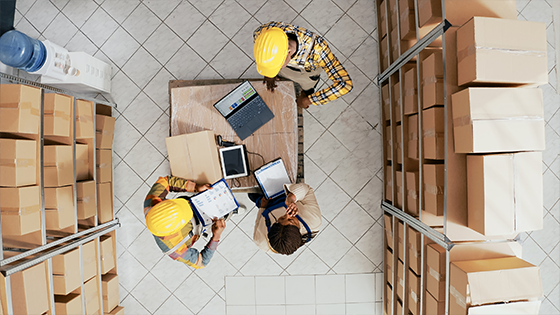
Performance Specifications: The Basics You Need to Know
When selecting a pressure sensor, the first thing to consider is its performance specifications. In simple terms, you need to understand what the sensor can do and if it meets your specific needs. Important factors include pressure range, accuracy, resolution, and response time. For example, if your application requires high precision, you’ll need a sensor with higher accuracy; if real-time response is critical, a quick response time is necessary. So, before making a selection, make sure you’re clear on your requirements and choose a sensor that aligns with them.
The Importance of Accuracy
Consider a situation where you’re designing a hydraulic system that requires real-time pressure monitoring. If you choose a sensor with low accuracy, it might give inaccurate data, affecting system stability. For instance, a 0.5 bar error may seem small, but in a high-pressure environment, it could lead to equipment failure or even safety hazards. By choosing a high-accuracy sensor, you ensure your data is precise, helping to avoid any potential issues.
Sensor Technology and Type: Choose the Right Technology for Your Needs
Pressure sensors come in various technologies and types, each with its own advantages and application scenarios. Common types include piezoresistive, capacitive, optical, and piezoelectric sensors. For example, piezoresistive sensors typically offer higher precision and are suitable for high-performance applications, while optical sensors perform better in some specialized environments. Understanding the characteristics of each sensor type can help you select the best one for your needs.
Different Sensor Technologies in Different Scenarios
Take, for instance, an intelligent water monitoring system. This system will likely operate in a challenging environment where there may be water vapor or corrosive gases. If you choose a standard piezoresistive sensor, it may perform poorly in these conditions and eventually fail. On the other hand, optical sensors perform better in harsh environments because they are less affected by external interferences. By choosing the right sensor type, you can ensure your system operates stably and reliably in all conditions.

Cost and Value: The Balance Between Price and Performance
Cost is an inevitable factor when selecting a pressure sensor, but it's important to remember that low price doesn't always mean good value. While it might be tempting to choose the cheapest option, if the sensor fails to perform as required, you may end up spending more in repairs or replacements, which could delay your project. The key is not to focus only on price but to balance it with the sensor’s performance and reliability, ensuring that you get the best value for your money.
The Trade-off Between Low Cost and High Value
Imagine you’re choosing between two sensor options: one is cheap but has poor accuracy, and the other is a bit more expensive but offers better precision and stability. If you go for the cheaper option, it might seem like a good deal at first. However, inaccurate data could lead to operational issues, resulting in costly repairs or even system failure. In the long run, choosing the higher-quality, slightly more expensive sensor would offer a better value as it will provide more reliable performance and reduce maintenance costs.
Quality and Reliability: Ensuring Long-term Stability
Quality and reliability are crucial factors when choosing a pressure sensor. Regardless of the type of sensor you choose, you must ensure that it's made with high-quality materials and is reliable enough to function under the expected conditions. A poor-quality sensor might malfunction or provide inaccurate data, which can compromise the safety and efficiency of your system. A reliable sensor ensures that your system will operate smoothly for a longer period, minimizing downtime and the need for replacements.
The Risks of an Unreliable Sensor
Take, for example, a sensor for a high-temperature, high-pressure industrial application. If you opt for one that lacks reliability, it may fail in extreme conditions, leading to incorrect pressure readings or even complete sensor failure. On an industrial production line, sensor failure could cause material waste, production downtime, or even safety hazards. A high-quality, reliable sensor would continue to perform accurately in these harsh conditions, ensuring the safety and efficiency of the entire process.
Technical Support: The Value of After-Purchase Assistance
When selecting a pressure sensor supplier, it's important to consider the level of technical support they offer. Pressure sensors are not one-time purchases; you’ll likely need guidance and support during the application phase. A supplier that offers prompt and professional technical support can help you troubleshoot issues, optimize sensor performance, and prevent potential damage or inaccuracies. A strong technical support team ensures that you can solve problems quickly and efficiently, enhancing your overall experience.
The Role of Technical Support in Problem-Solving
Consider a case where you encounter an issue with your sensor’s accuracy. If the supplier provides fast and expert technical support, they can analyze the problem and offer a solution in no time, minimizing delays in your project. However, if the supplier’s support is slow or inadequate, it may take much longer to identify and resolve the issue, leading to project delays and added costs. Having a reliable technical support team can make all the difference in solving problems efficiently and ensuring the success of your project.

Delivery Time and Customer Reviews: Reputation and Timeliness Matter
Delivery time and supplier reputation are also important considerations. If your project has strict deadlines, it’s crucial that the supplier delivers on time. Delayed deliveries can impact your project schedule and may even result in contractual issues. Additionally, looking at customer reviews and feedback can provide valuable insight into how reliable the supplier is. Reviews can reveal how well they adhere to delivery times, the quality of their customer service, and their overall reputation.
The Importance of Timely Delivery
Imagine you’re working on a critical industrial project with tight deadlines. If your supplier fails to deliver the sensors on time, it could delay the entire project, resulting in missed deadlines and potential financial losses. Choosing a supplier with a strong reputation for timely delivery ensures that your project proceeds without disruptions and helps maintain client satisfaction.
Conclusion: The Importance of Choosing the Right Supplier
Selecting the right pressure sensor supplier involves careful consideration of several factors, including performance specifications, sensor type, quality, cost, technical support, delivery time, and customer reviews. By weighing these elements carefully and choosing wisely, you can ensure that your project runs smoothly, and your system operates efficiently and safely. A reliable supplier not only provides the right sensor for your needs but also becomes a long-term partner in helping you achieve success.
Post time: Feb-07-2025

